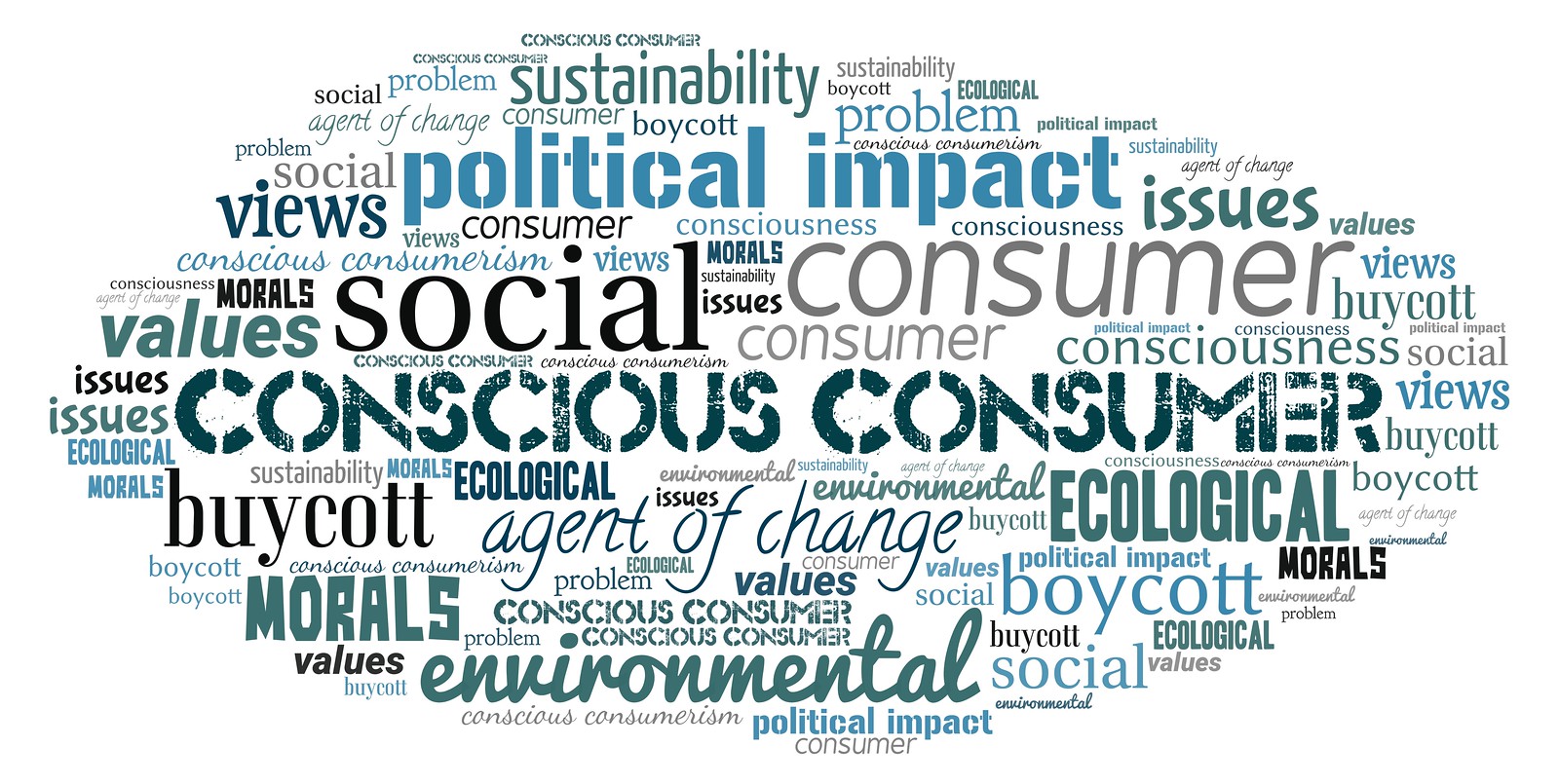It is the practice of changing your purchasing habits to have a positive effect on the environment or economy. Or, supporting businesses that are making a positive social impact.
Conscious consumerism might seem like nothing more than a trend. Now, more than ever, companies are throwing around words like “sustainable,” “eco-friendly,” and “fair trade.” There’s nothing wrong with that, as long as they aren’t greenwashing or using those words in an unethical way.
But, conscious consumerism is more than a trend. In reality, people want to feel good about the businesses they support. The concept of being a conscious consumer is nothing new. The phrase was first introduced in the 1970s and has seen waves of popularity over the years.
In today’s fast-paced society, 73% of consumers worldwide say they would change their consumption habits to reduce their impact on the environment. Those habits can change to promote employee safety and wellness, fair wages, and so much more.
So, you know that conscious consumerism is here to stay, but do you really know what it is? Once you have a better understanding of the definition, you can learn how to be more conscious about your purchasing choices.
What Defines a Conscious Consumer?
The first thing that might come to mind when you think of conscious consumerism is choosing to support businesses that take climate change seriously. Or, businesses that focus on sustainability efforts and green practices. That’s true, but conscious consumerism is so much more.
It is the practice of changing your purchasing habits to have a positive effect on the environment or economy. Or, supporting businesses that are making a positive social impact.
To be a conscious consumer, you might do things like researching different companies and the practices they use in their daily operations. Conscious consumerism is a commitment. It requires you to change your shopping mindset. So, don’t feel pressured into making huge changes all at once. Taking small steps toward better purchasing habits is a great way to start.

With that in mind, however, what can you do to start making more conscious decisions when it comes to the things you buy?
Buy From Planet-and-People-First Companies
Thankfully, the Internet makes it easy to do as much research as possible on different businesses. So, you can see where your favorite companies stack up. What should you be looking for? Make sure the places you shop have at least some of the following listed as priorities:
- They value the opinions of their employees
- They have a zero-tolerance policy for harassment and/or violence in the workplace
- They respect consumers by listening to feedback
- They utilize fair buying practices
- They have eco-friendly efforts in place to reduce their carbon footprint
- They are working toward a more sustainable future
You can tell a lot about a business by the way they treat their employees. If you’ve found a business that seems to struggle with their employees getting injured, it could be due to negligence. Slips, trips, and falls aren’t uncommon in the workplace.
But, if a business isn’t actively improving its safety training and protocols, it’s a bad sign. Businesses that skirt safety guidelines are usually trying to either save time or money. Again, it’s not fair to their employees and may not be safe for customers if they have a brick-and-mortar location. It’s a risk every time someone walks in the door. But, it’s often one they’re willing to take to avoid spending long hours and thousands of dollars on safety classes and gear. Every green business should make sure its employees understand safety guidelines by offering immediate training and creating a safety communication plan.
Be More Minimalistic
Sometimes, it’s not necessarily the companies you buy from, but what you choose not to buy that will make you a more conscious consumer.
What does that mean, exactly?
Minimalism has become increasingly popular in recent years. Essentially, it’s the practice of not making purchases beyond your basic needs. Some of the benefits include:
- Less stress
- A stronger budget
- Increased productivity
- It’s easier to stay organized
- Better for the environment
By incorporating minimalism into your life, you’ll take a closer look at necessary versus unnecessary purchases. You’ll do more research on everyday products to determine which ones best fit your lifestyle. As a result, you’ll typically end up going with products and businesses that care about everything from their manufacturing processes to supply chain practices. You might consider making more local purchases from farmers’ markets, local butchers, and artisan crafters.
Whether you decide to make your life more minimalistic or you just want to change the businesses you support, conscious consumerism requires thought and attention. You may have to research again and again to make sure you’re consistently staying up-to-date with different business practices and efforts to make positive changes.
But, if everyone chose to be a more conscious consumer, it would force more businesses to make those changes quickly. That would have an incredible impact on workplace safety, ethical practices, and the environment. So, don’t wait to start making conscious changes that can make a major difference.


Join the conversation!